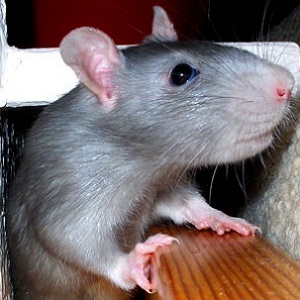
Are rats really the dread disease-carriers they're said to be, and, even if they're not, what can you do to keep them off your property?
Ever since the bubonic plague, which wiped out a third of the population of Northern Europe in the fourteenth century, the unfortunate rat has become a symbol of disease and imminent return to the Dark Ages. It wasn't even the rats' fault -- they carried the fleas which carried the real culprit: the plague bacterium. But the rat's rep was tarnished permanently.
Rats (or the lice and fleas on them) can transmit diseases such as typhus to humans, but if you keep a clean home and practise good basic hygiene, the risk of getting any of these diseases is very low. You don't want to encourage them to live inside your house, but the odd humble rodent sighted in your neighbourhood is not sufficient reason to call the health authorities or the heavy-duty exterminators.
You also don't have to put out poison, glue traps or snap-traps -- all of which cause painful death and can hurt other animals and children.
I liked this reader's unhysterical and earnestly eco-rodentia-friendly posting to the Envirohealth Forum:
I have rats living in my outbuildings (In the eaves & roof). They hide in the day but come out at night. I have tried putting a lot of mint all over the place but haven't rid myself of them yet. The dogs sleep in this space as well & their food is there, should I move the food out? I don't want to kill the rats, I just want them to move on.
Getting rats to 'move on'
It's commendable to use preventative measures rather than killing rodents, and not too difficult if you're consistent. At least give it a good try before going the trap and poison route, or calling in the pest exterminators.
Basically, to help keep rodents off your property, you need to make it undesirable to them. They're after food, water, shelter and easy access, so reduce the availability of these:
- Practise good housekeeping: clear up food spills, don't leave food out, and keep all leftovers in secure containers. Rubbish bins, bird feeders, and pet food bowls are all potential food sources for rats. Remember they excel at gnawing (e.g. through refuse bags, cardboard boxes, sometimes even through wood) and squeezing through incredibly small holes. Don't provide a water source either -- fix dripping taps and leaks, and empty pet water dishes at night.
- Get rid of clutter and rubbish, both indoors and out -- it can serve as shelter for rats. They also like long grass and bushes, so cut these back around buildings. If rats have made themselves at home in your roof, clean out the space under the roof thoroughly, removing any droppings, nest materials and clutter; then close up gaps and crevices so they can't re-enter.
- Seal up holes and cracks in walls and floors, and spaces around doors and windows. Check for gaps in your fencing where rats might wriggle through. They are good climbers, so remove anything (like overhanging tree branches) they can use to enter buildings. Rats may hide and nest in trees (most likely the roots), especially if they're fruit-bearing trees.
- You don't want to rely too heavily on this method, but domestic cats, and many dogs, are excellent ratters and their presence serves as a good deterrent. Within about a month of our moving in next door, my tabby had sorted out the rats (and a beautiful little shrew) nesting in the neighbours' ivy. You need to be prepared to receive those 'gifts' your pets bring you from their hunting expeditions however... And you don't want your pets eating what they catch, because they too can pick up diseases this way.
- Peppermint oil (and mint), is reputed to be a rodent repellent. Other non-toxic deterrents to try are garlic and cayenne pepper.
Live trap and release is also something to consider. The idea is that you make your home undesirable to rodents, then you trap any remaining using a trap that catches the animal without maiming or killing them. The National Society for the Prevention of Cruelty to Animals suggests contacting the company Animal Handling Support Systems , which supplies humane traps. You then release the rats as soon as possible away from, or at least outside, your rodent-proofed home. And repeat, until the rats get the message and move on to greener pastures.
Read more: Rodent control




 Publications
Publications
 Partners
Partners













